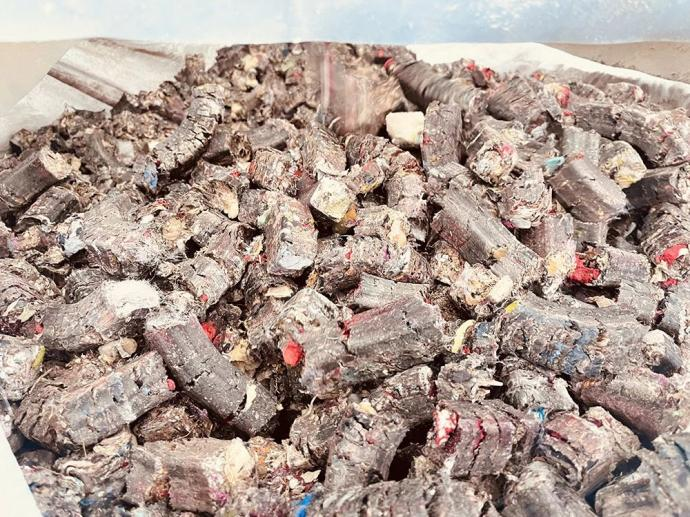

Out . 20, 2024 03:48 Back to list
Eddy Current Waste Separation A Revolutionary Approach to Recycling
In recent years, the importance of effective waste management has become increasingly apparent as the world grapples with mounting environmental challenges. One innovative solution that has emerged in the field of recycling is the use of eddy current separation. This technology not only enhances the efficiency of waste sorting but also plays a significant role in promoting sustainable practices and reducing landfill waste.
Eddy current separation is a non-ferrous metal separation technique that utilizes electromagnetic fields to distinguish metals from other materials in the recycling process. This method is particularly effective for separating aluminum, copper, and other non-ferrous metals from mixed waste streams. The process begins when waste materials are fed into a conveyor belt system equipped with an eddy current separator. As the materials pass over a rotating magnetic drum, an alternating magnetic field induces circulating eddy currents in the non-ferrous metals present in the waste.
Eddy Current Waste Separation A Revolutionary Approach to Recycling
One of the primary benefits of eddy current separation is its ability to significantly improve recycling rates. Traditional methods of metal separation often require extensive manual labor, making them both time-consuming and costly. In contrast, eddy current systems can process large volumes of waste quickly and efficiently. This not only reduces operational costs for recycling facilities but also allows for a higher percentage of materials to be recycled, minimizing the reliance on new raw materials.

Moreover, eddy current separation technology is highly versatile. It can be used in various applications, from municipal solid waste recycling to industrial waste management. For example, in the automotive industry, this technology proves valuable for recovering metals from end-of-life vehicles. As cars are dismantled, eddy current separators can efficiently extract non-ferrous metals from the remaining materials, allowing for effective reuse and recycling of valuable resources.
The environmental implications of efficiently recovering metals through eddy current separation cannot be overstated. By diverting non-ferrous metals from landfills, this technology contributes to reducing the environmental footprint associated with mining and processing virgin materials. It also helps in conserving energy since recycling metals typically requires significantly less energy compared to extracting and refining them from raw ore. This results in lower greenhouse gas emissions, aligning with global efforts toward reducing climate change impacts.
Additionally, as society becomes increasingly conscious of sustainability, consumer demand for recycled products continues to rise. Companies are responding to this trend by prioritizing recycled materials in their manufacturing processes, further driving the need for effective waste separation techniques like eddy current systems. This creates a positive feedback loop where improved recycling technologies lead to increased availability of recycled materials, which in turn stimulates market demand and supports the circular economy.
In conclusion, eddy current waste separation represents a significant advancement in the field of recycling and waste management. Its ability to efficiently extract non-ferrous metals not only contributes to higher recycling rates but also supports broader environmental goals. As we continue to explore innovative solutions to manage waste, integrating cutting-edge technologies like eddy current separation will be essential for building a more sustainable future. Embracing such innovations is not just a step towards improving waste management practices but a commitment to preserving our planet for future generations.
Latest news
Troubleshooting Common Eddy Separator Problems
NewsJul.04,2025
The Role of Metal Recycling Plants in Circular Economy
NewsJul.04,2025
The Impact of Recycling Line Pickers on Waste Management Costs
NewsJul.04,2025
Safety Features Every Metal Shredder Should Have
NewsJul.04,2025
How Industrial Shredders Improve Waste Management Systems
NewsJul.04,2025
How Cable Granulators Contribute to Sustainable Recycling
NewsJul.04,2025